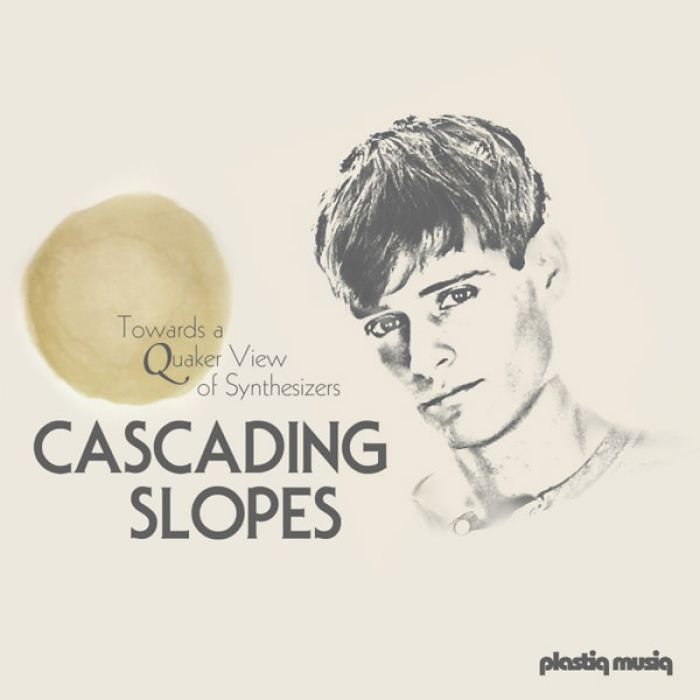In Rotation: Pilotpriest, Cascading Slopes, The Green Kingdom, Tim Story & CFCF (Review)

In Rotation is a regular Opus feature where I post short reviews of noteworthy music, both new and old, that I’ve been listening to lately.
W/W/D/K/F by Pilotpriest

Anthony Scott Burns has made a name for himself as a film director; his works include 2013’s dark sci-fi short Manifold and 2012’s Epoch. However, he’s also recorded several albums of cinematic analog-sounding electronic music under the Pilotpriest moniker. His most recent album, W/W/D/K/F, was released last month and its nine songs are by turns haunting, dark, epic, and danceable — and certainly recommended for fans of Makeup & Vanity Set and Daft Punk. “The Last Goodbye” is an obvious highlight, with delicate synth lines and arpeggios evoking long lost cult classics, while “Scherzo” is a lovely cascade of electronic sounds.
W/W/D/K/F also features two long bonus tracks — “The Father” and “Body Double Reprise” — which are bit more challenging and abstract than the “official” album tracks. Eschewing the beats and grooves prominent on songs like “Archive Seven” and “The Last Goodbye,” the bonus tracks delve more deeply into dark, cinematic ambience. This is especially true of “The Father,” with its tense atmospherics, sparse piano lines, and melancholy string arrangements; imagine a Christopher Nolan film score composed by Max Richter rather than Hans Zimmer.
Towards a Quaker View of Synthesizers by Cascading Slopes

According to their blog, Cascading Slopes (a side-project of The Drums’ Jacob Graham) seeks to “apply the Quaker concepts of plainness and simplicity to the creation of electronic music.” That may seem like an odd mission statement, but I urge you to just go with it: “plainness and simplicity” are likely what makes Towards a Quaker View of Synthesizers such an enchanting album. You can file it under “synthpop” — Joy Electric and Erasure influences are definitely at work here — but these dozen songs possess an emotional heft that one doesn’t always associate with the genre.
The album begins with its strongest track, “Wild Geese,” which spins potentially awkward nature imagery — “We’re like the wild geese that fly through the thunder/Onward and upward, through the clouds” — into a gorgeous tale of heartache and longing. (Graham’s delicate voice certainly enhances the effect.) Such imagery permeates the album alongside C.S. Lewis references (e.g., “Horns of Archenland”), which imbues the album with a sense of wonder and naïveté that plays nicely with both Graham’s shimmering vintage synthesizers and his unabashed romanticism.
Vapor Sequences by The Green Kingdom

After 2010’s Prismatic, I’d lost track of The Green Kingdom (the recording persona of Detroit’s Michael Cottone). On a whim, I decided to give Vapor Sequences a spin, and I’m glad I did. I doubt you’ll find a more accurate album title in 2015: the album’s four songs are airy wisps of nearly beatless ambient dub that drift around the listener with nary any resistance. The song titles — “Aetherium Dub,” “Vaporspace” — add to this sense of weightlessness, as does the minimal album artwork, which depicts a distant-yet-gorgeous sky looming beyond some grey, featureless slabs. (A dystopic cityscape perhaps?)
In any case, this is music that makes you want to untether yourself somehow and float right along with it, free from earthly concerns. And like all good ambient dub — especially that of Strategy (which I wrote about several weeks ago) or a warmer, less ominous Deepchord — it’s also great late night/really early morning music. These songs fit in quite nicely with the sort of bleary-eyed, blissed out mood that usually sets in around 2am. Consequently, Vapor Sequences has become my current go-to for post-midnight writing and coding sessions.
Beguiled by Tim Story

The colorful, blurred, slightly abstract cover art for Tim Story’s Beguiled is the perfect visual accompaniment for Story’s ambient chamber music. Obvious touchstones for Story’s exquisite soundscapes are Michael Brook, Daniel Lanois, and Harold Budd, but there’s also a melancholy at work that makes Beguiled must-hear material for fans of darkwave artists like Black Tape for a Blue Girl and Soulwhirlingsomewhere.
The title track quickly sets the tone, with blurry, twilit keyboard melodies and hazy guitar lines that drift by with seductive grace. One immediately feels as if they’re entering a tiny little sonic world, and throughout the album’s twelve songs — which have evocative titles like “In the Days of Small Sorrows” and “The Luminous, The Dark” — Story’s sublime arrangements never break that spell. One can never accuse Story of false advertising; this is a truly beguiling and bewitching album, and easily one of the best releases I’ve ever heard from the Hearts of Space label.
“Rain Dance” by CFCF
Ever since last year’s Outsiders EP, I’ve been waiting to hear more of CFCF’s lush, world music-inflected music. On August 14th, Mike Silver (the man behind the CFCF moniker) will release The Colours of Life, a single 40-minute piece broken up into twelve movements. “Rain Dance” is the fourth movement, and its rolling piano lines, fretless bass, trilling flutes, and shifting layers of percussion find Silver diving even deeper into the exotic sonic world he explored on Outsiders.
Sadly, “Rain Dance” is just under four minutes, leaving me wanting so much more. August can’t come soon enough.